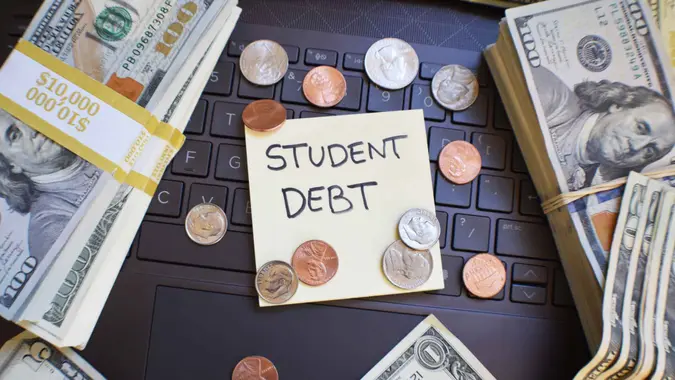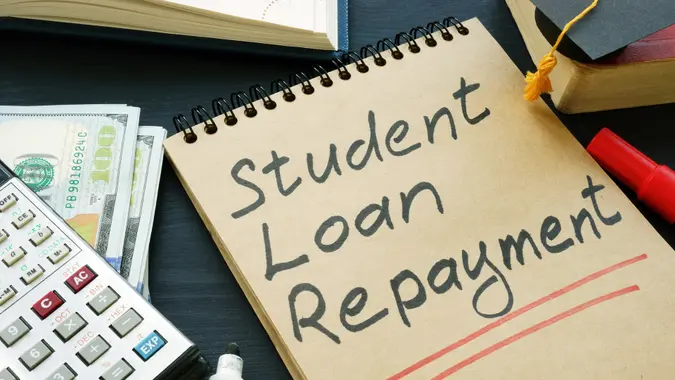Student Loan Forgiveness Scams on the Rise — Avoid Being a Victim of Fraud

Commitment to Our Readers
GOBankingRates' editorial team is committed to bringing you unbiased reviews and information. We use data-driven methodologies to evaluate financial products and services - our reviews and ratings are not influenced by advertisers. You can read more about our editorial guidelines and our products and services review methodology.

20 Years
Helping You Live Richer

Reviewed
by Experts

Trusted by
Millions of Readers
To say the staggering student loan debt is a crisis is an understatement. It impacts almost 43 million people, according to the Department of Education, and scammers are taking advantage of the recent confusion over student loan debt forgiveness and the pandemic-related pause in payments for federal loans.
“It’s kind of a prime moment for scams because I think they’re capitalizing on the confusion that surrounds what is happening with student loan policy and potential forgiveness,” Bridget Haile, head of borrower success at Summer, told CNBC.
Kristen Evans, chief of the students and young consumers section at the Consumer Financial Protection Bureau, informed CNBC that scammers are eagerly taking advantage of the financially vulnerable. However, there are still ways to spot these fraudsters.
First, it’s essential to be on high alert. Just because someone has information about your student loans, that alone doesn’t mean they are a legitimate organization. “We know that scammers have obtained credit reports illegally and then use that information,” Evans clarified.
She also advised double-checking the name of the operation — which may not even exist — and checking the address of any suspicious email. Another red flag is if someone is trying to charge a fee to forgive a loan. “Legitimate loan forgiveness programs will cancel part or all of your student loan debt, but they won’t charge you a fee to do that,” Rebecca Safier, a Student Loan Counselor with Student Loan Hero, explained to Real Simple.
One should always be wary when asked for personal information — Social Security number, federal student aid ID, credit card or bank account info — as this data should either be logged in on a secure portal or given over the phone to the servicer, Haile warned.
So what should you do if you’re the victim of a scam or have doubts? Act immediately and contact your servicer directly.
If a scammer has bank or card information, the bank or credit card company should be contacted right away to close accounts or stop any payments. Evans suggested checking your credit report for any suspicious activity, as well. You can also file a report with the Federal Trade Commission or call your state attorney general.
 Written by
Written by  Edited by
Edited by 

























